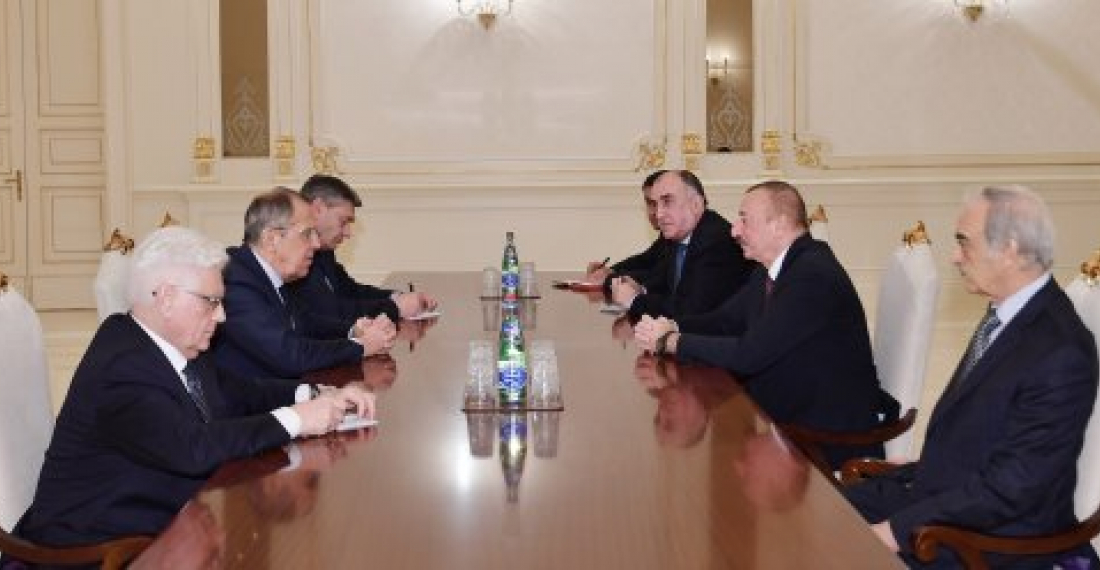Russian Foreign Minister Sergei Lavrov and Azerbaijani president Ilham Aliyev discussed the settlement of the Karabakh conflict at a meeting in Baku on Monday 2 December.
Lavrov's visit to the Azerbaijani capital was the latest in a stream of high level exchanges between the two countries, which a few days ago also saw the visit of First Vice President Mehriban Aliyeva to Moscow for meetings with the Russian leadership.
At their meeting Lavrov and Aliyev also touched on the Karabakh conflict settlement process. According to official sources, Aliyev expressed displeasure at lack of progress in the negotiations, but expressed continued committment to the work of the OSCE Minsk Group, highlighting the next meeting of the foreign ministers of Armenia and Azerbaijan due to take place this week.
Lavrov on his part referred to the agreements in Vienna and Moscow and insisted on the importance of their implementation. He also emphasised the need to avoid rhetoric that goes against the principals enshrined in the Helsinki Final Act and the UN Charter.
In November Lavrov was in Armenia, and Karabakh was again high on the agenda. Read more here
source: commonspace.eu
photo: Sergei Lavrov met ilham Aliyev in Baku on2 December 2019 (picture courtesy of the prerss service of the president of Azerbaijan)






